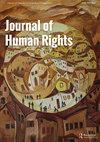Explaining support for international action against human rights abusers
IF 1.6
2区 社会学
Q3 INTERNATIONAL RELATIONS
引用次数: 1
Abstract
Abstract How do international audiences decide whether to support action against human rights abusers? Foreign governments often respond to human rights abuses with naming and shaming, economic sanctions, or military action. Individuals make decisions about whether to support these actions with varying levels of information: Allegations might be sparse on details because of insufficient resources for reporting or because perpetrators conceal their behavior. Using a survey experiment that randomly varies the precision of details in human rights allegations, I found that respondents are highly supportive of action against human rights abusers regardless of the level of detail in reporting. Audiences especially support naming and shaming and imposing economic sanctions; they are more skeptical about intervening militarily. I found no evidence that precise fatality estimates, precise geographic location, or prompt reporting make respondents more willing to support these actions. Obfuscating details of human rights violations is not enough for perpetrators to escape international support for accountability.解释对反对侵犯人权者的国际行动的支持
摘要国际受众如何决定是否支持针对侵犯人权者的行动?外国政府经常以点名羞辱、经济制裁或军事行动来回应侵犯人权的行为。个人通过不同程度的信息来决定是否支持这些行动:由于报告资源不足或犯罪者隐瞒了自己的行为,指控的细节可能很少。通过一项随机改变人权指控细节准确性的调查实验,我发现,无论报告的细节程度如何,受访者都高度支持对侵犯人权者采取行动。听众特别支持点名羞辱和实施经济制裁;他们对军事干预持怀疑态度。我没有发现任何证据表明,准确的死亡估计、准确的地理位置或及时的报告会让受访者更愿意支持这些行动。混淆侵犯人权行为的细节不足以使肇事者逃脱国际社会对追究责任的支持。
本文章由计算机程序翻译,如有差异,请以英文原文为准。
求助全文
约1分钟内获得全文
求助全文

 求助内容:
求助内容: 应助结果提醒方式:
应助结果提醒方式:


